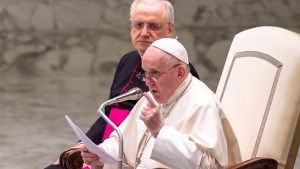Today’s readings can be found here.
Judgment, mercy, and fidelity are the three words Jesus highlights in today’s Gospel to show us the Magna Carta of a believer’s morality.
Being in a relationship with God is not measured by how neurotically we defend rules and emphasize minor details. Being a believer is shown by our ability to respond to reality as it presents itself to us (judgment), by knowing how to love others as they are, that is, in their fallen nature (mercy), and by the consistency of how we make choices that do not contradict what we think is true, good, and right (fidelity).
One who strives to live these three words is truly a believer. But if instead of being fair in our judgment we become cunning, instead of being merciful we become rigid, and instead of being faithful we become opportunistic, then what is the point of keeping up such a religious apparatus?
All of Jesus’ teaching has a starting point: inner cleanliness, that is, our ability to know how to change within first:
“Woe to you, scribes and Pharisees, you hypocrites. You cleanse the outside of cup and dish, but inside they are full of plunder and self-indulgence. Blind Pharisee, cleanse first the inside of the cup, so that the outside also may be clean.”
If we remove the malice that dwells in us we will have fulfilled all the necessary of the commandments God has given us, and we will have also changed the world.
~
Father Luigi Maria Epicoco is a priest of the Aquila Diocese and teaches Philosophy at the Pontifical Lateran University and at the ISSR ‘Fides et ratio,’ Aquila. He dedicates himself to preaching, especially for the formation of laity and religious, giving conferences, retreats and days of recollection. He has authored numerous books and articles. Since 2021, he has served as the Ecclesiastical Assistant in the Vatican Dicastery for Communication and columnist for the Vatican’s daily newspaper L’Osservatore Romano.



